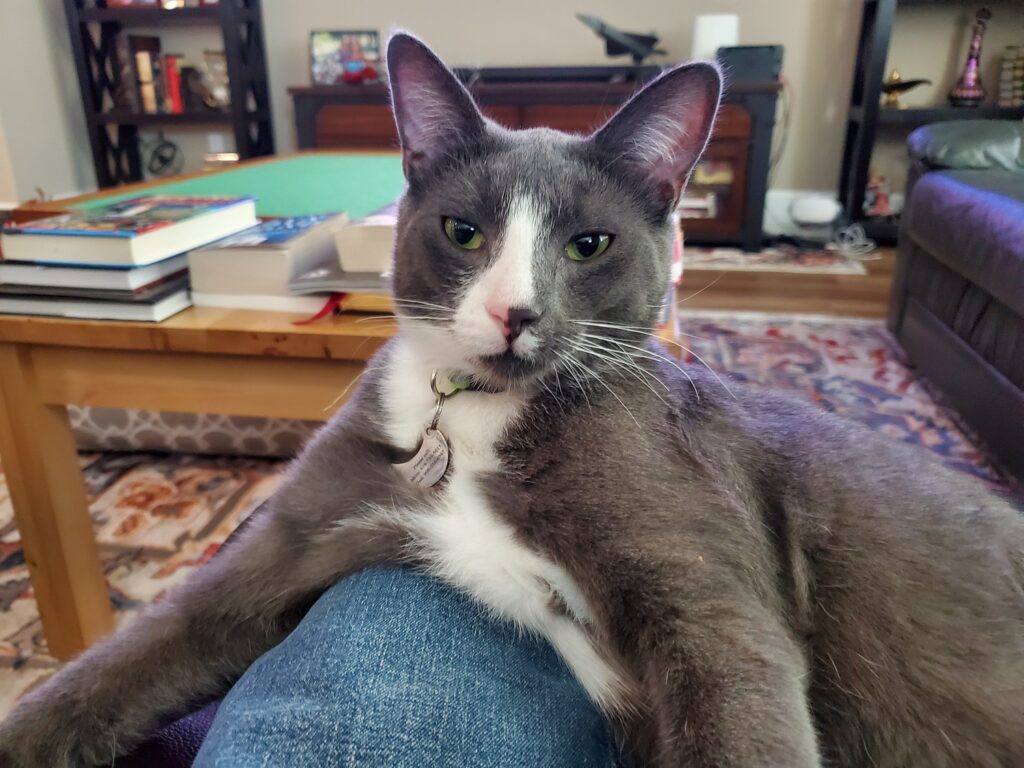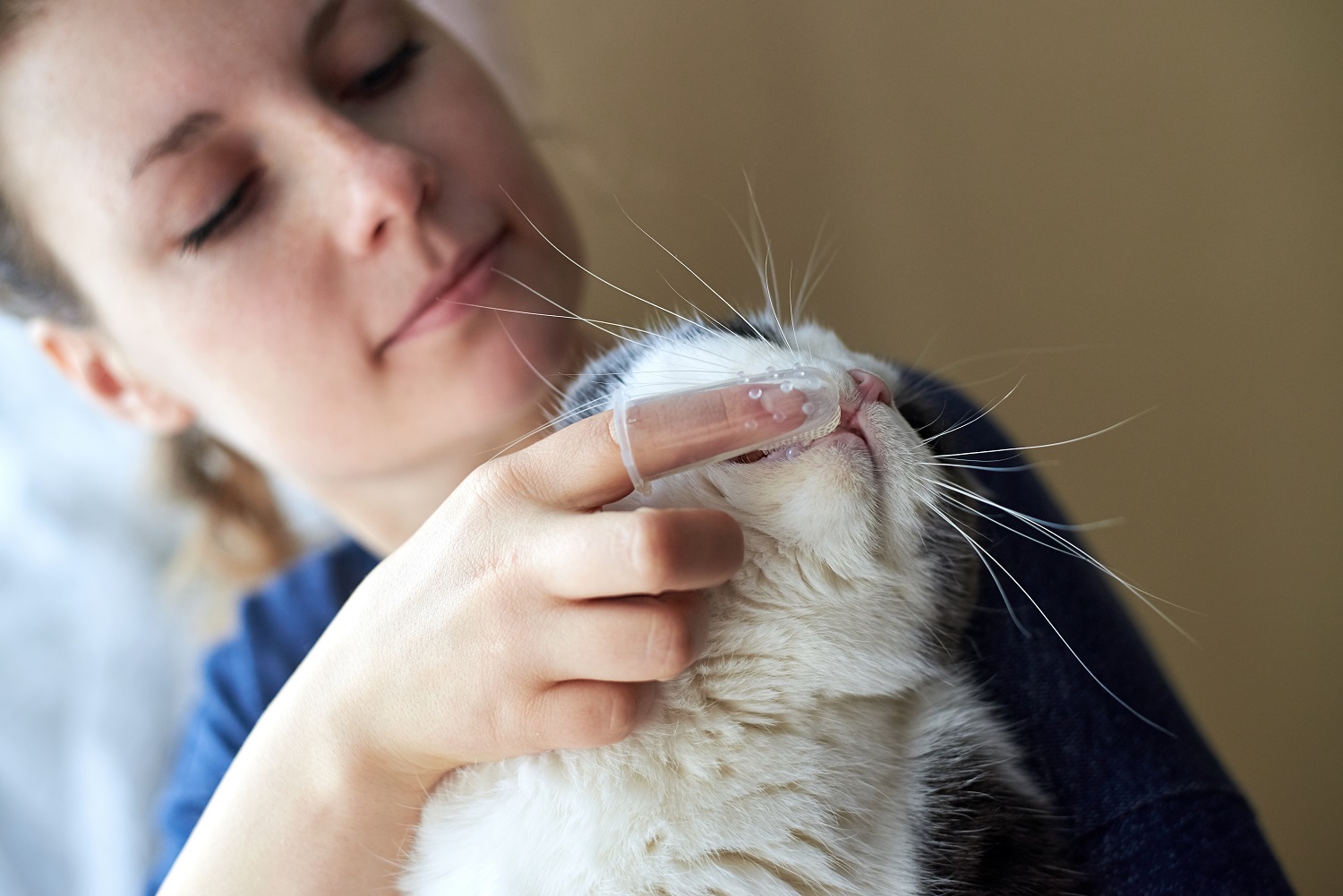When it comes to pet care, brushing your cat’s teeth probably ranks somewhere between “sounds terrifying” and “never going to happen.” But here’s the truth. Brushing your cat’s teeth is one of the best things you can do for their long-term health, and it does not have to be a full-blown wrestling match.
Cats are prone to dental disease, and ignoring their oral hygiene can lead to serious problems like tooth loss, infection, and even issues with the heart and kidneys. It may feel a little awkward at first, but with some patience and a good toothbrush, you can make dental care a regular part of your cat’s routine.
Let’s break down why it matters, how to do it right, and what to expect when you first bring a toothbrush into your cat’s world.
Why Cat Dental Health Matters More Than You Think
Cats are masters of pretending everything is fine, even when it is not. That includes dental pain. By the time your cat shows obvious signs of tooth trouble, the issue has usually been brewing for a while.
Feline dental disease is incredibly common. In fact, studies show that most cats over the age of three have some form of dental problem, including gingivitis, periodontal disease, or tooth resorption.
Common symptoms include:
- Bad breath (worse than the usual tuna funk)
- Red or swollen gums
- Drooling or pawing at the mouth
- Difficulty eating or chewing on one side
- Bleeding from the mouth
- Sudden resistance to being touched around the face
Left untreated, dental disease can lead to chronic pain, tooth loss, infections that spread to vital organs, and a very grumpy cat.
Regular brushing helps prevent these issues by removing plaque before it turns into hard tartar that only a vet can scrape off.
How Often Should You Brush Your Cat’s Teeth?
In a perfect world, you would brush your cat’s teeth daily. That gives the best protection against plaque buildup and keeps your cat’s mouth in top shape.
But if daily brushing sounds like a fantasy, do not worry. Even brushing three times a week can make a noticeable difference.
Consistency is key. Whether it is every day or every few days, sticking to a routine gives your cat time to adjust and helps prevent the dental rollercoaster of “all good” one year and “emergency extraction” the next.
What You Need to Get Started
You do not need a full dental clinic in your living room, but a few basic supplies will help make the process smoother.
Cat-specific toothpaste
Never use human toothpaste. Many ingredients in human formulas, like fluoride and xylitol, are toxic to cats. Use a product labeled for feline use that is safe to swallow and flavored with something your cat will not hate.
Cat toothbrush or finger brush
Small, soft-bristled brushes work best. A finger brush or even a piece of gauze wrapped around your finger can be a good starting point.
A calm space and a patient mindset
You will not be winning your cat’s trust by coming in like a dentist on a mission. Choose a quiet time of day when your cat is relaxed, and keep the first sessions short.
How to Introduce Your Cat to Tooth Brushing
The key to success is taking it slow. If you try to pry their mouth open on day one, you are likely to lose the battle and a little bit of dignity.
Step 1: Get them used to mouth handling
Start by gently lifting your cat’s lip and touching their teeth with your finger. Do this for a few days while giving treats and praise. Make it positive and pressure-free.
Step 2: Introduce the toothpaste
Let your cat sniff and lick the toothpaste off your finger. Choose a flavor they enjoy. This helps them associate brushing time with something tasty.
Step 3: Add the brush
Once they are okay with mouth handling and the taste of the paste, try using a brush or gauze to gently rub the outside surfaces of their teeth. Focus on the back molars where plaque loves to build up.
Step 4: Build up slowly
You do not need to brush every tooth right away. Start with just a few seconds, then add more time each session. Keep it low-pressure and end on a positive note.
Brushing should not feel like a punishment. The more comfortable your cat is, the easier it gets over time.

Oh, fantastic. Mom’s at it again… poking around in my mouth with some weird goop on her finger. Am I not choking enough for you? What is it with these humans? Every time I turn around, they’re sticking something in one of my holes. #JustLetMeNap #LeaveMyTeethAlone #TastesLikeChicken
Winston
What If Your Cat Just Won’t Tolerate It?
Not every cat will accept brushing, and that is okay. While brushing is the gold standard, there are other ways to support your cat’s oral health.
Try dental treats or chews
There are vet-approved treats designed to help reduce plaque buildup. These are not a substitute for brushing, but they can help in between or for cats who refuse the brush.
Look for dental diets
Some prescription cat foods are made with larger kibble and special textures that help clean teeth as your cat chews.
Use water additives or oral gels
These can help control bacteria in the mouth and support fresher breath. Ask your vet which ones are safe and effective.
Schedule regular dental exams
Even if brushing is not an option, your cat should have their teeth checked by a vet at least once a year. Many dental issues are hidden below the gumline and require professional dental cleaning to treat properly.
Final Thoughts: It Is a Little Weird, but It Works
Brushing your cat’s teeth might not be at the top of your to-do list, but it is one of the simplest ways to protect their health in the long run. It helps prevent pain, saves you from costly vet visits, and may even add years to your cat’s life.
Start small, stay consistent, and keep it positive. Even if your cat never learns to love it, they will benefit from the effort. And who knows? They might even surprise you and become the kind of cat who sits still for a dental spa day.
Or at least pretends to.
Sources:
Cat Dental Health Guide https://www.petmd.com/cat/general-health/cat-dental-care
How to Brush Your Cat’s Teeth https://vcahospitals.com/know-your-pet/brushing-your-cats-teeth
Feline Oral Hygiene Tips https://www.humanesociety.org/resources/keeping-your-cats-teeth-clean
Understanding Cat Dental Disease https://www.icatcare.org/advice/dental-disease-in-cats
Recent Posts
Your Cat Might Be a Furry Little Healer… or at Least a Fuzzy Alarm System If you’ve ever had your cat suddenly become extra clingy when you’re under the weather, you’re not alone. From...
Cats are experts at hiding things, socks under furniture, their disdain for your playlist, and, unfortunately, symptoms of illness. In the wild, showing weakness could make them a target, so even...


